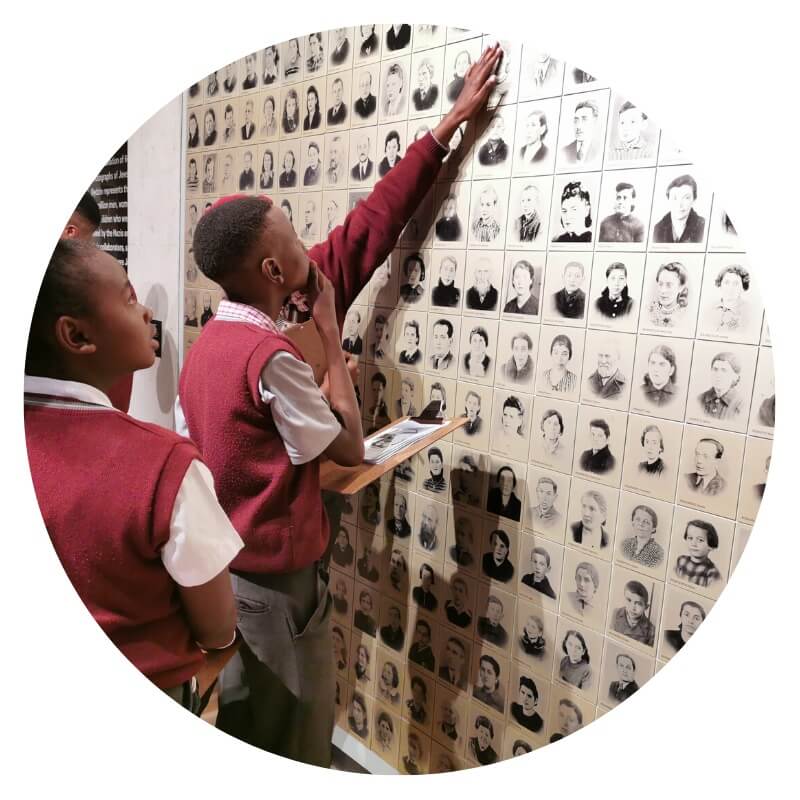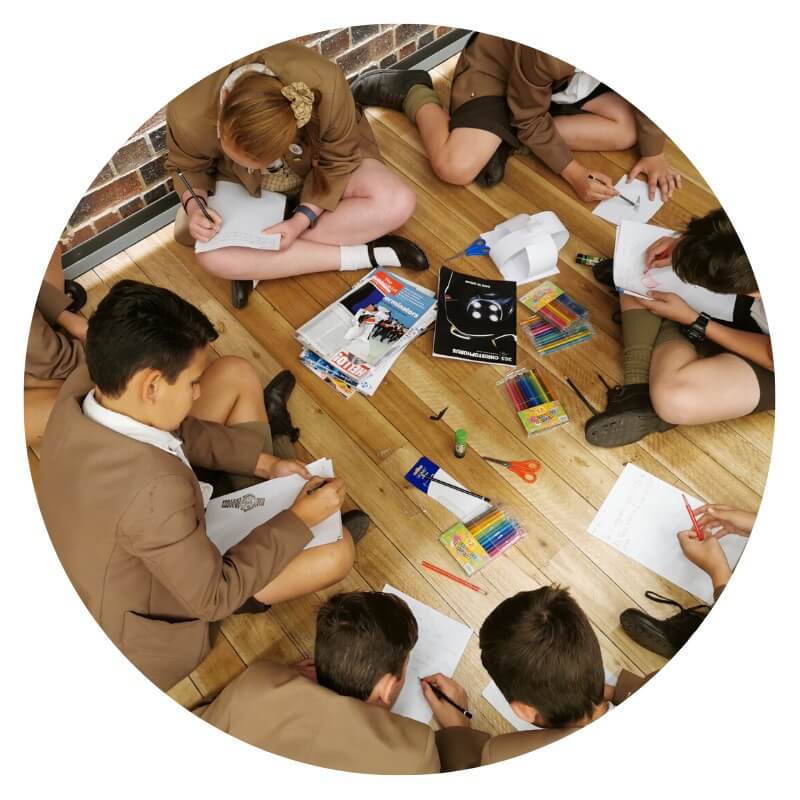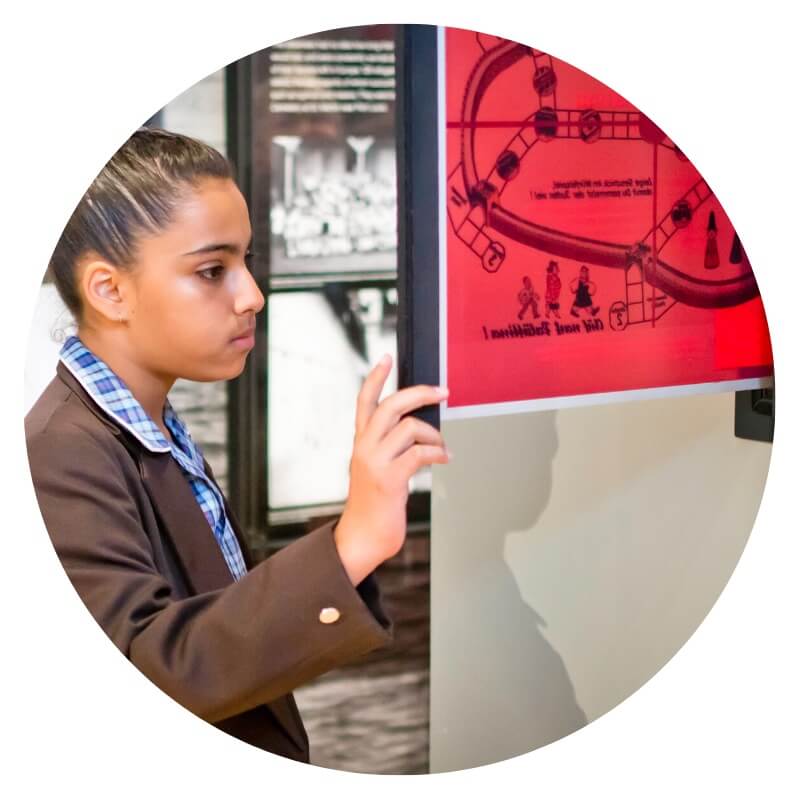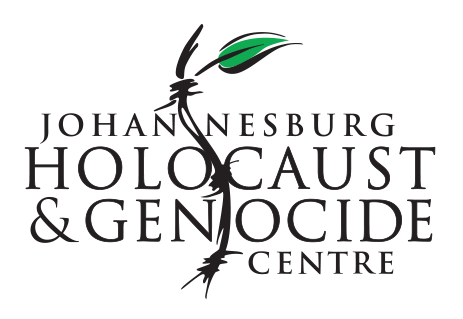About
Home » About
The Johannesburg Holocaust & Genocide Centre
The Johannesburg Holocaust & Genocide Centre is a place of memory, education and lessons for humanity. The JHGC explores the history of genocide in the 20th century with a focus on the case studies of the Holocaust and the 1994 genocide in Rwanda. It examines the connections between genocide and contemporary human rights issues, urging visitors to understand the consequences of prejudice, discrimination and othering, so as to prevent the recurrence of mass atrocities and genocide in all its forms.
The JHGC was founded in 2008 and officially opened to the public in March 2019 as a public-private partnership with the City of Johannesburg. The JHGC, together with its sister Centres in Cape Town and Durban, forms part of the association, the South African Holocaust & Genocide Foundation.
Learn more about the activities of the Centre by downloading our brochure.
Purpose
The JHGC honours the memory of the victims of genocide in the 20th century and teaches about the consequences of prejudice and hate speech so as to prevent the recurrence of mass atrocities and genocide in all its forms.
Mission
The JHGC serves as a memorial to the victims of the Holocaust, Nazi Germany and the 1994 genocide in Rwanda. As a centre of memory, education, dialogue and lessons for humanity, the JHGC focuses on human rights issues such as prejudice, racism, ‘othering’, antisemitism, homophobia and xenophobia. Conscious of the dangers of indifference, apathy and silence, the JHGC urges its visitors to be an active voice against instances of hate speech and related human rights violations in their own communities.
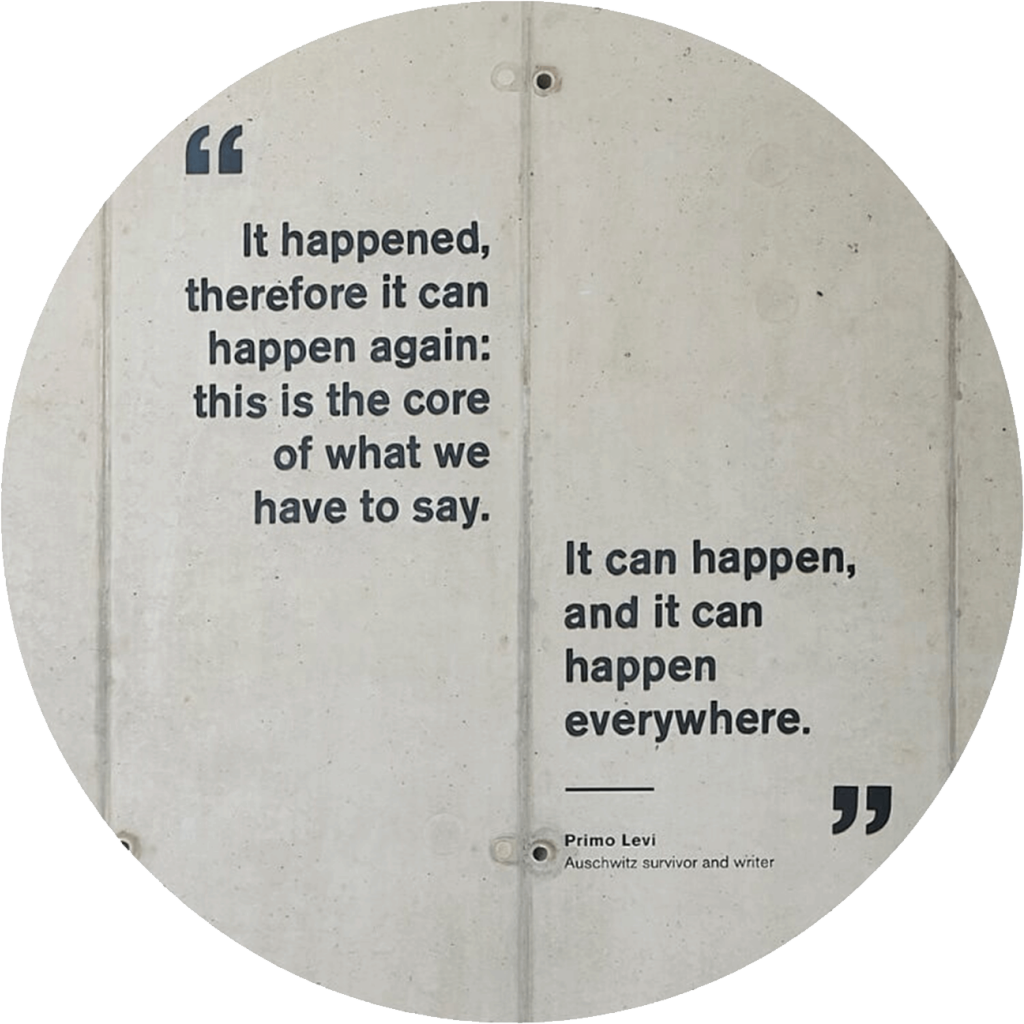
Educational and Public Programmes
In 2007, the study of “Nazi Germany and the Holocaust” and “Ideas of Race in the 19th and 20th Centuries” was incorporated into the National High School Curriculum of South Africa for Grade 9 Social Sciences and Grade 11 History learners. The JHGC assists provincial education departments, schools and educators with these human rights modules by facilitating comprehensive and engaging educator training and learner workshops.
Educational programmes are run by our passionate and knowledgeable facilitators and volunteers, making use of permanent and temporary exhibitions, survivor testimony, multimedia and interactive activities. By using the history of the Holocaust and 20th century genocide as an entry point, participants are then able to explore more contemporary themes such as moral choices, human rights and social activism.
The JHGC also hosts regular public events and programmes, including temporary exhibitions, lectures, film screenings, commemorations and other special workshops, which explore various topics related to genocide and human rights.
